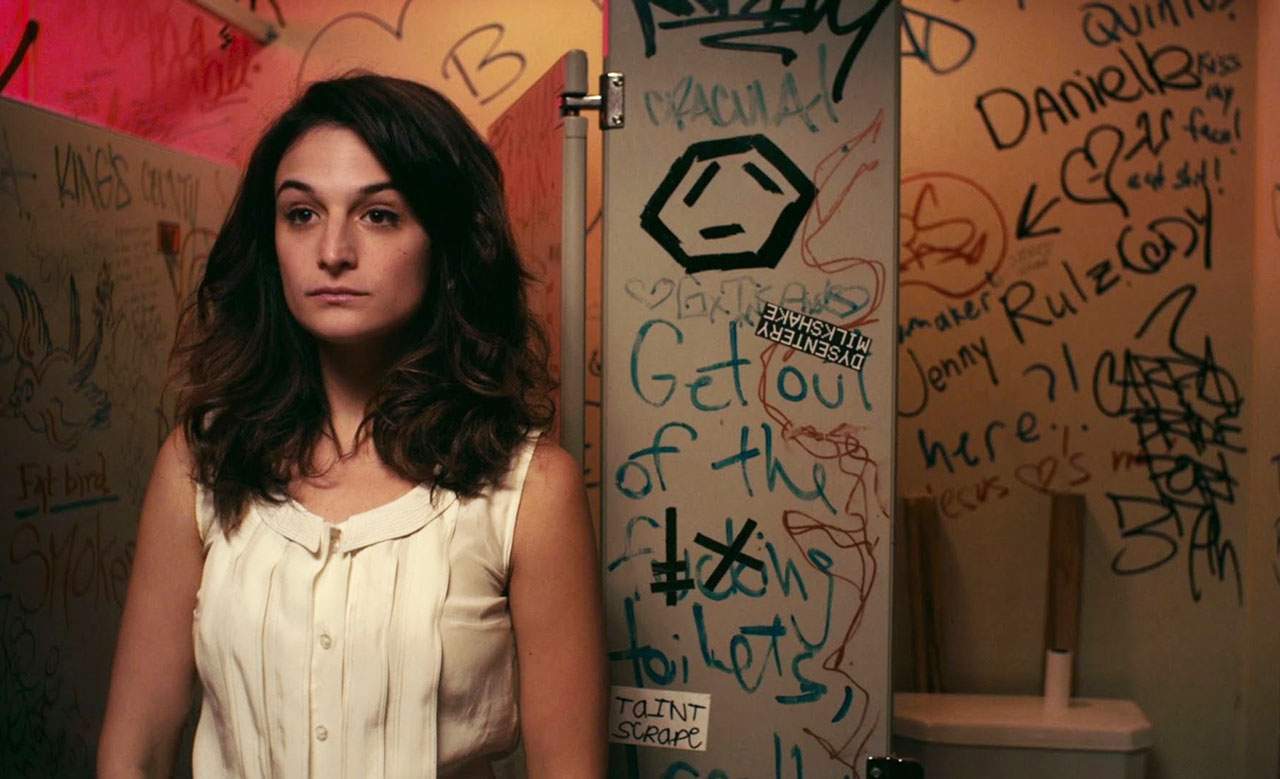Obvious Child
The funniest movie about abortion you're ever likely to see.
Overview
There's a line of dialogue, right towards the end of Obvious Child, when Donna (Jenny Slate) bemoans the overabundance of romantic comedies on TV. "I just hate that kind of film," she quips. "I just don't connect." In that moment, it's as if writer-director Gillian Robespierre is talking to the camera herself. A smart, candid, foul-mouthed and thoroughly charming subversion of sugary romantic fantasies and stereotypical representations of women on screen, Obvious Child ranks among the very best in the much maligned rom-com genre. It's also the funniest movie about abortion you're ever likely to see.
Indeed, Robespierre's script feels largely like a response to the weirdly conservative position espoused — intentionally or not — in pregnancy comedies like Juno and Knocked Up, in which abortion is quickly brushed over for a more conventionally heartwarming alternative. In stark contrast, when Donna finds out she's pregnant a few weeks after a drunken hook-up, the best course of action is clear. An aspiring stand-up comic in her late-twenties with no steady source of income and no real sense of direction, there's just no way on earth Donna's ready to have a child.
What's refreshing about Obvious Child isn't just the path that our heroine takes, but how resolutely she sticks to it. There no handwringing or moralising about her decision, because it's obviously the most responsible thing to do. The frank, open-minded approach with which the film treats not just pregnancy, but sex and female sexuality in general, is the sort of thing that mainstream movies could use more of.
Which isn't to say that the film is preachy. Save for a frustrated rant from Donna's roommate (Gaby Hoffmann) about the "weird old white men in robes [who] get to legislate our cunts," Obvious Chid avoids the prickly politics of abortion. This movie is primarily a comedy, and a pretty hilarious one at that. Best known for her recurring role on Parks and Recreation and a short-lived stint on SNL, Slate gives what is easily one of the breakout comic performances of the year. It's clear from Donna's stand-up that she's a person who says whatever's on her mind — which tends to mean a lot of talk about sex and bodily functions.
And yet, somehow, the film also manages to be sweet. Even as Donna prepares to terminate the pregnancy, she finds herself growing closer to the baby's father, the endearingly white-bread Max (Jake Lacy). They don't make for the most conventional pairing, admittedly. But then again, not being conventional is what makes the movie so great in the first place.





